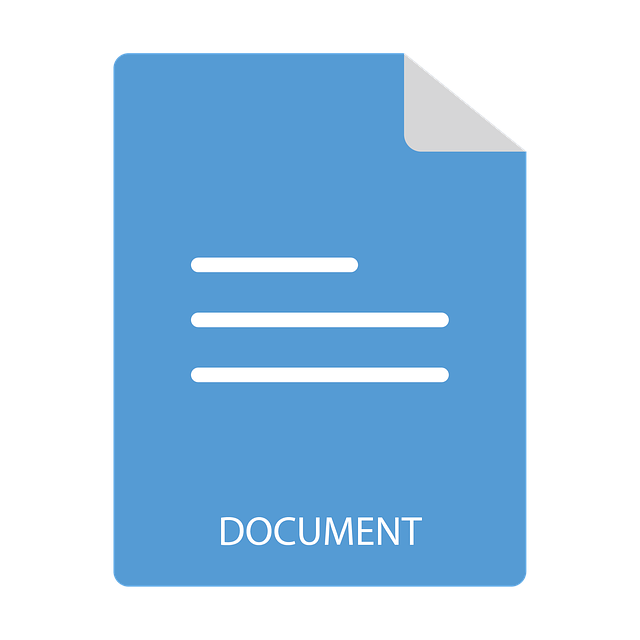UK Intellectual Property Documents translation services are essential for businesses looking to secure and enforce their IP rights on an international scale. The accuracy and precision of these translations are paramount, as they must convey the complex legal nuances and technical details inherent in patents, trademarks, and designs across different languages and jurisdictions. By engaging with seasoned translators who specialize in IP law, companies can ensure that their intellectual property documentation is accurately translated, legally sound, and culturally appropriate for foreign markets. This level of expertise is crucial for maintaining the integrity and enforceability of IP rights, allowing businesses to navigate international IP filings with confidence and success.
Navigating the complex landscape of international intellectual property (IP) filings necessitates a meticulous approach, particularly when it comes to translations. This article delves into the critical role of precise, trusted translations in safeguarding your IP abroad, emphasizing the importance for UK innovators and creators. We explore key considerations for selecting a reliable translation service, the legal aspects of compliance with international IP laws, and the impact of cultural nuances on document translations. With a focus on UK Intellectual Property Documents translation services, we provide a comprehensive guide to ensure your IP is protected accurately across different markets. From the significance of professional human translators to best practices for handling technical and legal jargon, this article is an indispensable resource for anyone looking to expand their IP globally. Understanding the nuances of patent and trademark translations and managing language barriers in international IP disputes are also covered, ensuring you maintain the integrity of your inventions through accurate translation.
- Overview of International Intellectual Property (IP) Filings and Translation Necessity
- The Role of Accurate Translations in IP Protection Abroad
- Understanding the Importance of Language Precision in UK IP Documents
- Key Considerations for Choosing a Translation Service for IP Purposes
- Legal Aspects and Compliance with International IP Laws in Translation
- The Impact of Cultural Nuances on IP Document Translations
- Certified Translation Services: A Must for UK IP Filings
- Case Studies: Successful IP Protection through Effective Translation
- Evaluating the Credibility of Translation Service Providers in the UK
- Ensuring Consistency and Quality Across Multilingual IP Portfolios
Overview of International Intellectual Property (IP) Filings and Translation Necessity

Navigating international intellectual property (IP) filings requires meticulous attention to detail, particularly when it comes to language barriers. IP documentation, including those from the UK Intellectual Property Documents translation services, must be accurately translated to ensure that inventions, designs, and trademarks are protected as intended across different jurisdictions. The process of filing for IP protection in multiple countries necessitates translations that are not only linguistically correct but also technically precise to maintain the integrity and enforceability of the IP rights. Translation services specializing in UK intellectual property documents play a pivotal role here, providing translations that adhere to the legal standards and nuances required by international patent offices. These services ensure that the substance, context, and technical content of the original document are accurately conveyed in the target language, thereby safeguarding the rights of inventors and creators on an international scale. By leveraging expert translation from reputable UK intellectual property documents translation services, businesses can navigate the complex landscape of international IP filings with greater confidence and security.
The Role of Accurate Translations in IP Protection Abroad

Accurate translations play a pivotal role in safeguarding intellectual property (IP) rights on an international scale. When filing for IP protection abroad, it is imperative that all documentation, particularly UK Intellectual Property Documents, is accurately translated to ensure clarity and legal enforceability. The precision of translation services is not just a matter of semantics; it is a critical component of strategic IP management. Mistranslations can lead to misinterpretations of the original content, potentially resulting in weakened protection or even the loss of IP rights. Consequently, businesses must rely on professional translation services that specialize in legal documents to navigate the nuances of language and compliance across different jurisdictions. These services are instrumental in facilitating a clear understanding of the IP rights being claimed, ensuring that inventors, creators, and brands can leverage their innovations and creations effectively on a global scale. The stakes are high, as the accuracy of translations can be the difference between robust IP protection and exposure to infringement and potential litigation in foreign markets. Thus, when seeking UK Intellectual Property Documents translation services, it is advisable to choose providers with expertise in both the source and target languages, as well as a deep understanding of international IP laws to guarantee the integrity of the translations.
Understanding the Importance of Language Precision in UK IP Documents

When filing for intellectual property rights in the UK, the precision and accuracy of language used in documentation are paramount. The intricacies of IP law vary significantly between jurisdictions, making it crucial to convey the precise terms and conditions accurately across languages. Any misinterpretation or omission due to inadequate translation can lead to complications, potential legal challenges, or even the invalidation of an IP right. Therefore, opting for professional UK Intellectual Property Documents translation services is essential. These services are staffed by experts who are not only linguistically proficient but also well-versed in IP law, ensuring that technical and legal nuances are accurately captured in the target language. This commitment to exactitude is indispensable for maintaining the integrity of your IP assets and avoiding costly errors that could arise from mistranslations. Utilizing these specialized translation services safeguards your international filings, enabling you to navigate the complexities of UK IP law with confidence. Whether you’re filing a patent, trademark, or design application, accurate translation is key to successful international IP strategies, and it underscores the importance of choosing the right service providers for your documentation needs.
Key Considerations for Choosing a Translation Service for IP Purposes

When venturing into international intellectual property (IP) filings, the accuracy and precision of translated documents are paramount. The UK Intellectual Property Documents translation services market offers a plethora of options, each with its own set of capabilities and expertise. To navigate this landscape effectively, it is crucial to evaluate several key considerations. Firstly, language proficiency extends beyond fluency; translators must be adept in industry-specific terminology to ensure technical concepts are accurately conveyed. This is particularly important in IP documentation, which often contains complex legal and scientific jargon. Secondly, consider the translator’s familiarity with the specific filing requirements of the target jurisdiction. Compliance with local regulations is essential to avoid delays or rejections in the application process. Additionally, opt for translation services that guarantee confidentiality and have a proven track record of handling sensitive information, which is a common requirement in IP filings. By carefully assessing these factors, businesses can select a translation service that not only meets their immediate needs but also contributes to the strategic expansion of their IP portfolios worldwide. The reliability and quality of UK Intellectual Property Documents translation services are critical in safeguarding your intellectual assets across borders.
Legal Aspects and Compliance with International IP Laws in Translation

When engaging in international intellectual property (IP) filings, the accuracy and legal compliance of translations are paramount. UK Intellectual Property Documents translation services play a critical role in this process, ensuring that the nuances of IP law are accurately conveyed across different jurisdictions. The translators specializing in these services must be well-versed not only in the source and target languages but also in the specific legal terminologies relevant to IP rights. This proficiency is essential for maintaining the integrity of the IP documents, which often include patents, trademarks, and design applications. Each document must be translated with an understanding of the local laws and international treaties governing IP, such as the Agreement on Trade-Related Aspects of Intellectual Property Rights (TRIPS) and the Patent Cooperation Treaty (PCT). These translations serve to protect the rights of inventors and creators by ensuring their IP filings are legally compliant in the territories they wish to operate, thus facilitating global market entry.
Furthermore, the translation must adhere to the specific format and standards set by international bodies, as well as individual countries’ regulatory requirements. This is where UK Intellectual Property Documents translation services excel, offering a combination of linguistic expertise and knowledge of IP legal frameworks. By leveraging the services of seasoned translators with a background in law, clients can navigate the complexities of international IP protection confidently. These experts work diligently to provide precise translations that are compliant with international IP laws, thereby enabling businesses to secure their IP rights and assert their market position on an international scale.
The Impact of Cultural Nuances on IP Document Translations

When navigating international intellectual property (IP) filings, the accuracy and cultural sensitivity of translations play a pivotal role in safeguarding the rights and interests of IP holders. The linguistic precision required for UK Intellectual Property Documents translation services extends beyond mere word-for-word equivalents; it necessitates an understanding of cultural nuances that can alter the meaning and implications of legal texts. For instance, what may be perceived as a minor variation in terminology within one culture could significantly impact the interpretation and enforceability of IP rights in another. This is where specialized translation services excel, offering expertise not only in linguistic equivalence but also in the subtleties of cultural context that can affect IP documentation. These providers ensure that translations are not just accurate reflections of the original content but are also appropriate for the target jurisdiction’s legal framework and business practices. By leveraging such UK Intellectual Property Documents translation services, filers can mitigate potential misunderstandings and legal complications that could arise from mistranslations, thereby upholding the integrity and validity of their IP assets on an international stage.
Certified Translation Services: A Must for UK IP Filings

When venturing into international intellectual property (IP) filings, the accuracy and legitimacy of UK Intellectual Property documents translation services cannot be overstated. In the complex arena of IP law, precision is paramount to safeguard inventions, designs, trademarks, and patents. Certified Translation Services play a critical role in this process, ensuring that all documentation is translated with both linguistic and legal accuracy. These services are staffed by expert translators who are not only fluent in multiple languages but also well-versed in IP terminology and the nuances of UK law. This expertise is essential to convey the exact meaning of the original text, avoiding any ambiguity or misinterpretation that could compromise the rights being asserted. Utilizing professional UK Intellectual Property Documents translation services is a crucial step for entities looking to protect their innovations and creative works across borders, ensuring compliance with international regulations and standards while maintaining the integrity of their IP assets.
Case Studies: Successful IP Protection through Effective Translation

When it comes to securing intellectual property (IP) rights globally, the accuracy and cultural nuance of translations are paramount. For instance, a British company innovated in the realm of green technology, which required protecting their patents across Europe and Asia. The success of this IP protection hinged on the precise translation of UK intellectual property documents into several languages. The chosen translation services provider not only translated the technical content with precision but also adapted the language to align with local business practices and legal terminologies, ensuring that the spirit and intent of the original documents were preserved. This meticulous approach allowed for seamless international filings, leading to the successful recognition and enforcement of their IP rights in various jurisdictions.
Another case study involves a multinational pharmaceutical firm looking to expand its patented drug into new markets. The challenge was to translate complex clinical data and patent descriptions without any loss of information or misinterpretation. Utilizing professional UK intellectual property documents translation services, the company ensured that their filings in these new territories were both accurate and comprehensible to local regulatory bodies. This strategic use of specialized translation services was instrumental in navigating the complex legal landscapes of each country, ultimately safeguarding the firm’s IP assets and paving the way for successful market entry. These examples underscore the critical role that effective translation plays in the internationalization of intellectual property. It is a testament to the necessity of engaging with experienced translators who specialize in IP documentation to secure comprehensive protection on a global scale.
Evaluating the Credibility of Translation Service Providers in the UK

When navigating the complexities of international intellectual property (IP) filings, the accuracy and credibility of UK Intellectual Property Documents translation services are paramount. Businesses and individuals alike must ensure that their IP is accurately represented in the target language to maintain its integrity and legal standing. Selecting a reliable translation service provider in the UK necessitates a thorough evaluation process. Potential clients should consider a provider’s expertise in the field of IP law, as well as their proficiency in the languages required for the filings. It is advisable to assess the provider’s track record, including past client testimonials and case studies where the translations were used successfully in international jurisdictions. Additionally, reputable UK translation services for intellectual property should be accredited or hold professional certifications that attest to their quality assurance processes. By doing due diligence, clients can confidently entrust their vital IP documents to a service provider that upholds the highest standards of accuracy and confidentiality, thereby safeguarding their inventions, trademarks, and design rights in a global marketplace. In choosing between providers, it is not just about language fluency; it’s about finding a partner with a deep understanding of the nuances of IP law and the ability to convey these intricacies accurately across languages, which is crucial for successful international filings.
Ensuring Consistency and Quality Across Multilingual IP Portfolios

When managing international intellectual property (IP) portfolios, consistency and quality in translations are paramount. The accuracy of UK Intellectual Property Documents translation services is critical to ensure that the scope, claims, and specifics of an invention or design are accurately conveyed across different languages. Mistranslations can lead to misunderstandings, legal complications, and even the invalidation of patents, trademarks, or designs in foreign jurisdictions. Utilizing professional translation services that specialize in IP-related content guarantees terminological precision and contextual relevance. These providers are well-versed in the nuances of IP law and can adapt their translations to align with the specific requirements of each target language and country, thus upholding the integrity and enforceability of the IP rights in question. By leveraging these specialized services, companies can navigate the complexities of international IP protection with confidence, knowing that their documentation is clear, precise, and legally sound across all linguistic barriers. This meticulous approach to translation is essential for maintaining a cohesive and robust IP portfolio on a global scale.
UK businesses and inventors seeking to secure international intellectual property (IP) rights must prioritize accurate translations of their documents. As highlighted throughout this article, precise language is critical in IP filings to ensure legal clarity and compliance across jurisdictions. The choice of a reputable translation service provider in the UK becomes paramount, not only to navigate the complexities of international IP laws but also to account for cultural nuances that could otherwise compromise protection. With a focus on consistency, quality, and credibility, the best translation services offer UK Intellectual Property Documents that are legally sound and tailored to diverse linguistic markets, thereby paving the way for successful IP filings worldwide. By leveraging expert translators who specialize in legal terminology, innovators can confidently extend their intellectual property protection globally, safeguarding their creations and fostering growth in an increasingly interconnected world economy.



